I’ve been using natural hair oils for a while now, and I can’t even begin to describe how much they’ve transformed my hair. I started with coconut oil, and the difference was noticeable almost immediately. My hair felt softer, shinier, and healthier—way more manageable than before. After that, I added a bit of rosemary oil for hair growth to my routine, and I’ve noticed less hair fall and even some new growth! What I love most is knowing that I’m using something all-natural, without the chemicals you find in most store-bought products. Honestly, I’ve never been more in love with my hair, and I just had to share this with others who are looking for something that really works.
Top 5 Natural Hair Oils: Discover the Best Options for Your Hair
Contents
- 1 Top 5 Natural Hair Oils: Discover the Best Options for Your Hair
- 1.1 1. SVA Essential Oils Lavender Oil
- 1.2 2. Plantur 39 Caffeine Natural Hair Oil
- 1.3 3. Mielle Rosemary Mint Scalp Strengthening Oil
- 1.4 4. Wella Professionals Ultimate Oil for Damaged Hair
- 1.5 5. USDA Organic Jojoba Oil
- 1.6 How to Make Your Own Custom Natural Hair Oil Blend at Home: A DIY Guide
- 1.7 Step 1: Choose Your Base Oil
- 1.8 Step 2: Add Essential Oils for Specific Benefits
- 1.9 Step 3: Blend in Carrier Oils for Extra Nourishment
- 1.10 Step 4: Mix and Apply
- 1.11 Step 5: Customize for Your Hair Type
- 1.12 Why You Should Switch to Natural Hair Oils: Benefits You Didn’t Know About
- 1.13 1. Promotes Scalp Health
- 1.14 2. Enhances Shine and Softness
- 1.15 3. Fights Frizz and Split Ends
- 1.16 4. Strengthens and Repairs Damaged Hair
- 1.17 5. Free from Harsh Chemicals
- 1.18 6. Supports Healthy Hair Growth
- 1.19 How to Use Argan Oil for Gorgeous, Silky Hair
- 1.20 The Science Behind Rosemary Oil for Hair: Does It Really Work?
- 1.21 Essential Oils for Hair: Which One is Right for You?
- 1.22 How to Choose the Right Natural Hair Oil for Your Hair Type
- 1.23 The Role of Natural Oils in Reducing Hair Fall and Boosting Hair Thickness
- 1.24 Natural Oils vs. Store-Bought Products: Why You Should Make the Switch
- 1.25 How to Make the Most of Coconut Oil for Hair Health
- 1.26 The Secret Benefits of Jojoba Oil for Scalp Care and Hair Growth
- 1.27 How Often Should You Use Natural Hair Oils? Best Practices for Haircare
- 1.28 5 Common Mistakes to Avoid When Using Natural Hair Oils
- 1.29 A Beginner’s Guide to Essential Oils for Hair: What You Need to Know
- 1.30 How to Combine Natural Hair Oils with Other Haircare Products for Maximum Results
- 1.31 The Best Natural Oils for Treating Dry and Damaged Hair
- 1.32 Why Castor Oil is a Game-Changer for Thinning Hair
- 1.33 Natural Oils for Scalp Health: Why Scalp Care Shouldn’t Be Overlooked
- 1.34 How Natural Oils Can Protect Your Hair from Heat Damage
- 1.35 The Best Natural Oils for Curly Hair: Boost Definition and Moisture
- 2 FAQs
When it comes to natural hair oils, there are plenty of choices that cater to different hair types and concerns. Here are the top 5 natural hair oils you should consider:
1. SVA Essential Oils Lavender Oil
SVA Essential Oils Lavender Oil is a 100% pure, therapeutic-grade oil that works wonders for the scalp and hair. Known for its calming properties, it helps reduce dandruff and itching while promoting relaxation. This versatile oil is also fantastic for making DIY hair treatments, adding a soothing touch to your haircare routine.
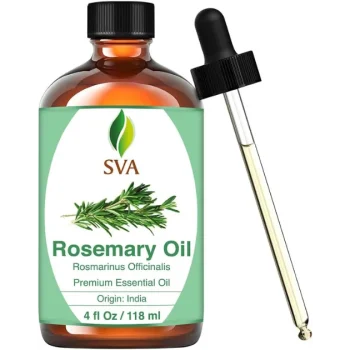
Positive Points:
- Soothes the scalp and alleviates dandruff
- 100% pure lavender oil with therapeutic benefits
- Multi-functional—great for hair, skin, and relaxation
2. Plantur 39 Caffeine Natural Hair Oil
Plantur 39 Caffeine Natural Hair Oil is designed to tackle thinning hair and nourish the scalp. It’s enriched with caffeine, which stimulates hair growth, making it a great option for those struggling with hair loss or thinning hair. This lightweight oil is ideal for oily or combination hair types, providing nourishment without weighing hair down.
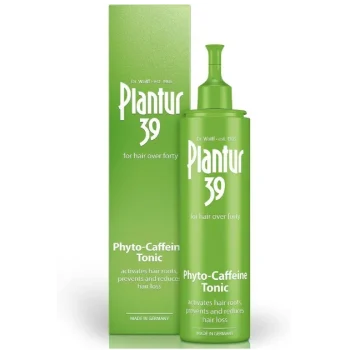
Positive Points:
- Ideal for thinning hair and improving scalp health
- Contains caffeine for hair growth stimulation
- Lightweight and non-greasy, perfect for oily hair
3. Mielle Rosemary Mint Scalp Strengthening Oil
Mielle Rosemary Mint Scalp Strengthening Oil is packed with the natural goodness of rosemary and mint, two essential oils known to promote hair growth. The invigorating scent also boosts circulation in the scalp, helping with hair follicle stimulation and reducing breakage. This oil is perfect for anyone looking to improve scalp health and strengthen hair.

Positive Points:
- Stimulates hair growth with rosemary and mint
- Strengthens and nourishes hair follicles
- Reduces hair breakage and split ends
4. Wella Professionals Ultimate Oil for Damaged Hair
Wella Professionals Ultimate Oil for Damaged Hair is designed to repair and revitalize hair that has been damaged by heat, chemical treatments, or environmental factors. This oil restores shine and smoothness, leaving your hair looking healthier and feeling more manageable.

Positive Points:
- Perfect for repairing damaged hair
- Restores natural shine and smoothness
- Ideal for chemically treated or heat-damaged hair
5. USDA Organic Jojoba Oil
USDA Organic Jojoba Oil is a versatile, cold-pressed oil that is suitable for all hair types, particularly dry and sensitive scalps. Rich in vitamins and minerals, it deeply hydrates and nourishes the scalp, leaving hair soft, shiny, and healthy.
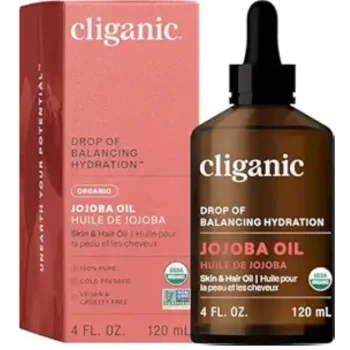
Positive Points:
- Certified organic and cold-pressed for purity
- Hydrates and nourishes dry hair and scalp
- Suitable for all hair types, especially sensitive scalps
How to Make Your Own Custom Natural Hair Oil Blend at Home: A DIY Guide
Creating your own custom natural hair oil blend at home is an affordable and effective way to address your specific hair care needs. Whether you’re looking to promote hair growth, reduce frizz, or enhance shine, crafting a personalized hair oil blend allows you to choose the perfect oils for your hair type. In this DIY guide, we’ll walk you through the essential steps to make your own hair oil mix, using natural ingredients that nourish and protect your hair.
Step 1: Choose Your Base Oil
The first step in creating your custom hair oil blend is selecting a base oil. Base oils serve as the foundation for your blend and provide essential moisture to your hair. Popular base oils for hair care include:
Coconut Oil: Perfect for dry or damaged hair, coconut oil helps retain moisture and prevents protein loss.
Argan Oil: Rich in antioxidants and vitamin E, argan oil is excellent for boosting shine and softening hair.
Jojoba Oil: Known for its ability to balance scalp oil production, jojoba oil is ideal for all hair types, including oily hair.
Step 2: Add Essential Oils for Specific Benefits
Next, you’ll want to add essential oils that address your unique hair care concerns. These concentrated oils provide additional nourishment and therapeutic benefits. Some options include:
Rosemary Oil: Stimulates hair follicles and encourages healthy hair growth.
Lavender Oil: Reduces stress and promotes relaxation, while improving scalp health and circulation.
Peppermint Oil: Improves blood flow to the scalp and promotes hair growth, while offering a cooling sensation.
Step 3: Blend in Carrier Oils for Extra Nourishment
Carrier oils are essential for diluting essential oils and ensuring they are safe for your skin and hair. They also add moisture and nourishment. Some great options include:
Olive Oil: Known for its deep moisturizing properties, olive oil helps smooth dry, frizzy hair.
Sweet Almond Oil: Rich in vitamins A, B, and E, sweet almond oil strengthens hair and prevents breakage.
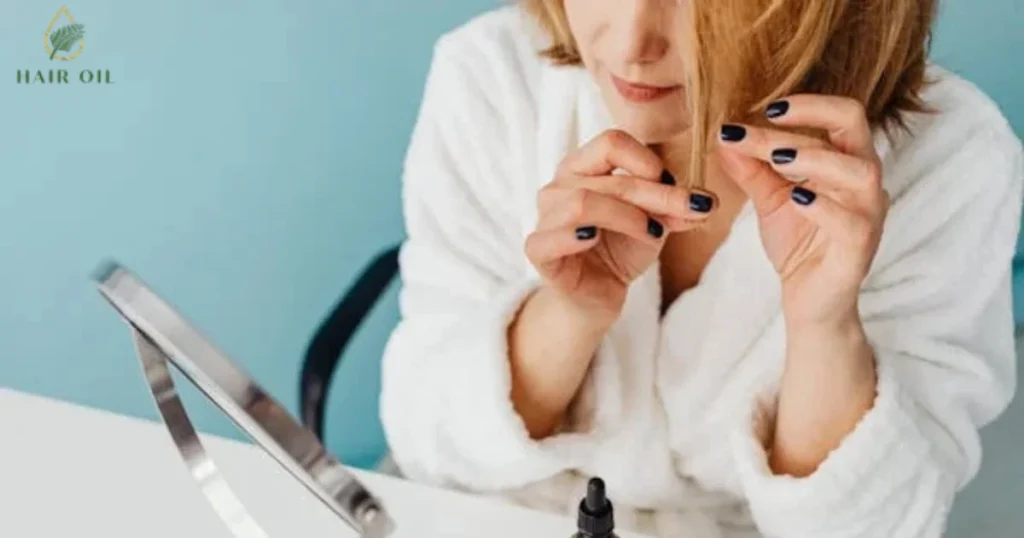
Step 4: Mix and Apply
Once you’ve selected your oils, it’s time to mix them. In a small glass container, combine your chosen base oil with a few drops of essential oils and carrier oils. A general guideline is to use about 1-2 tablespoons of base oil for every 3-5 drops of essential oils. After blending, gently massage the oil into your scalp and through the lengths of your hair. Leave it on for at least 30 minutes before washing it out for the best results.
Step 5: Customize for Your Hair Type
Feel free to experiment with different oils based on your hair’s needs. For example:
For Dry Hair: Focus on moisturizing oils like coconut, argan, and olive oils.
For Oily Hair: Choose lightweight oils like jojoba and grapeseed oil to balance sebum production.
For Damaged Hair: Blend oils rich in vitamins and proteins, such as castor oil and avocado oils, to restore health and shine.
Why You Should Switch to Natural Hair Oils: Benefits You Didn’t Know About
Switching to natural hair oils offers a multitude of benefits that can dramatically improve the health, shine, and overall appearance of your hair. Unlike synthetic hair products that may contain harsh chemicals and artificial fragrances, natural hair oils provide nourishment from the root to the tip, ensuring your hair receives the best care possible. Here’s why you should make the switch to natural hair oils today:
1. Promotes Scalp Health
One of the key benefits of natural hair oils is their ability to improve scalp health. Natural oils for dry scalp, like tea tree oil, rosemary oil, and lavender oil, have natural antibacterial and antifungal properties, helping to treat common scalp issues such as dandruff, dryness, and itchiness. Regular use of these oils helps maintain a balanced, healthy scalp environment, which is essential for strong and healthy hair growth. This is especially helpful for those looking to prevent hair fall or improve overall scalp conditions.
2. Enhances Shine and Softness
Natural oils for frizzy hair are packed with essential nutrients and vitamins that hydrate and nourish your hair, leaving it with a natural shine and softness. Oils like argan oil and coconut oil for hair care are rich in antioxidants and fatty acids, which help to seal in moisture and prevent the hair from becoming dry and brittle. With consistent use, your hair will look healthier, shinier, and more vibrant without the need for heavy styling products. Best natural oils for healthy hair can make all the difference in achieving that soft, shiny look!
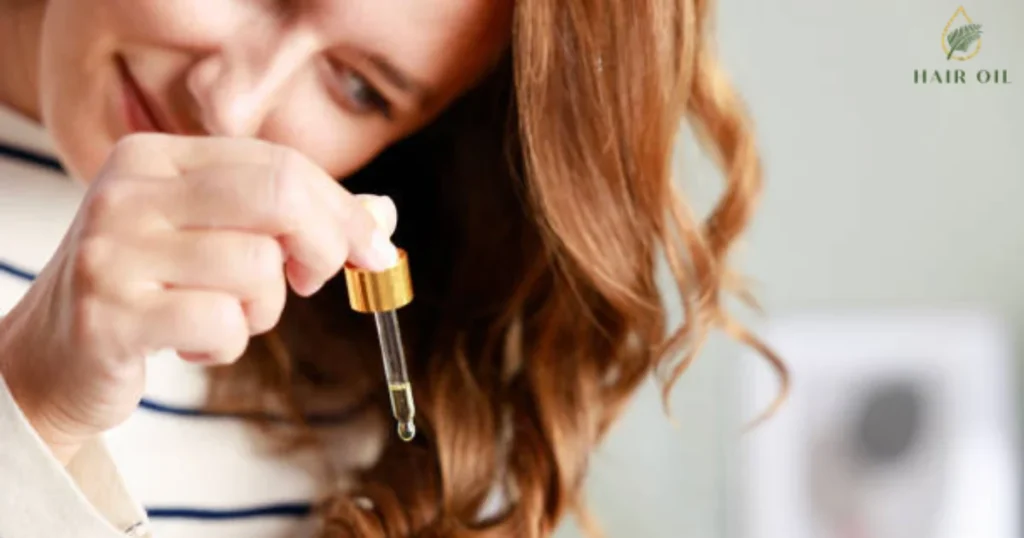
3. Fights Frizz and Split Ends
Say goodbye to frizzy hair and split ends! Natural oils help to smooth the hair shaft, reducing frizz and preventing split ends from forming. Jojoba oil and sweet almond oil are excellent choices for taming unruly hair, as they provide long-lasting moisture without weighing the hair down. Regular use of natural oils for frizzy hair helps keep your hair smooth and manageable, making it easier to style and maintain. These oils are especially good for those with curly or textured hair, helping to prevent frizz and maintain smoothness.
4. Strengthens and Repairs Damaged Hair
Natural oils for hair growth, like castor oil and avocado oil, are packed with proteins and vitamins that penetrate deep into the hair shaft, restoring moisture and promoting hair growth. These oils help to rejuvenate dry, brittle hair and make it more resilient to damage caused by environmental stressors or heat styling. The repair properties of natural oils for damaged hair can make a noticeable difference in restoring your hair’s health and strength. Whether you’re looking to repair breakage or reduce thinning, these oils have your back!
5. Free from Harsh Chemicals
Unlike many commercial hair care products that are laden with sulfates, parabens, and synthetic fragrances, natural hair oils are free from harmful chemicals. Using organic hair oils means you’re treating your hair to pure, unrefined ingredients that nourish without causing damage. This is especially beneficial for those with sensitive skin or allergies to synthetic chemicals, as natural oils for sensitive scalps are gentle and soothing. Premium hair oils for healthy hair are typically crafted without any artificial additives, offering a cleaner, safer option for your hair care routine.
By incorporating natural oils for healthy hair into your routine, you can nourish, strengthen, and repair your hair, all while avoiding the harsh chemicals found in many commercial products. Whether you’re dealing with dryness, frizz, or damage, switching to natural hair oils can help you achieve the beautiful, healthy hair you’ve always wanted.

6. Supports Healthy Hair Growth
Certain natural oils for hair growth, such as rosemary oil and castor oil, are known for their ability to stimulate blood circulation to the scalp, which in turn promotes healthy hair growth. Regular massage with these oils can help to strengthen the hair follicles and encourage new hair growth, making them an excellent choice for anyone looking to boost hair thickness and volume. Natural oils for thicker hair can work wonders when used consistently, providing essential nutrients that nourish your scalp and hair roots for healthier growth.
How to Use Argan Oil for Gorgeous, Silky Hair
Argan oil is a powerhouse ingredient for achieving gorgeous, silky hair. Packed with essential fatty acids, antioxidants, and vitamin E, this luxurious oil deeply nourishes and hydrates your hair, leaving it smooth, shiny, and frizz-free. To incorporate argan oil into your hair care routine, start by applying a few drops to damp hair, focusing on the ends where dryness and split ends are most common. For an extra boost, you can also use it as a leave-in conditioner or mix it with your regular hair products for added moisture. If you have particularly dry or damaged hair, consider using it as a deep conditioning treatment by applying a generous amount to your hair, wrapping it in a towel, and leaving it on for 30 minutes before rinsing. With regular use, premium hair oils for healthy hair, like argan oil, help to strengthen hair, promote shine, and combat frizz, leaving you with soft, manageable strands that look and feel healthier.
The Science Behind Rosemary Oil for Hair: Does It Really Work?
Rosemary oil has long been praised for its potential to promote hair growth and improve scalp health, and science backs up its reputation. Rich in antioxidants, anti-inflammatory compounds, and ursolic acid, rosemary oil for hair growth stimulates circulation to the scalp, which can encourage hair follicles to produce more hair. Studies have shown that rosemary oil can help combat hair thinning by blocking the effects of DHT (dihydrotestosterone), a hormone linked to hair loss. Additionally, its antimicrobial properties help maintain a clean and healthy scalp, reducing dandruff and other scalp conditions that can hinder hair growth. Natural oils for healthy hair like rosemary oil also improve hair strength by nourishing the scalp and promoting overall scalp health. When used regularly, it can lead to thicker, healthier hair and may even help prevent premature graying. So, whether you’re dealing with hair thinning or simply want to boost your hair’s health, rosemary oil is a natural, effective option with proven benefits.
Essential Oils for Hair: Which One is Right for You?
When it comes to enhancing hair health, essential oils for hair are a powerhouse, each offering unique benefits depending on your specific hair needs. Lavender oil is known for its calming properties, but it also promotes hair growth by stimulating blood flow to the scalp. It’s perfect for those dealing with hair thinning or stress-related hair loss. Peppermint oil, with its refreshing menthol scent, stimulates the scalp, improving circulation and encouraging hair growth. It also helps with dandruff and an itchy scalp, making it ideal for individuals with dry, flaky skin. Tea tree oil is a natural antifungal and antibacterial agent, making it highly effective for treating scalp conditions like dandruff, psoriasis, or oily scalp. It cleanses the hair follicles and prevents build-up, promoting healthier hair growth. Depending on your hair type and concerns, each essential oil for thicker hair offers a targeted solution—whether it’s soothing a stressed scalp, tackling dandruff, or stimulating growth—making them an essential part of any natural hair care routine.

How to Choose the Right Natural Hair Oil for Your Hair Type
Choosing the right natural hair oils for hair growth depends on your hair type and specific needs. For fine hair, lightweight oils like jojoba oil or grapeseed oil are ideal because they provide moisture and shine without weighing hair down. If you have curly hair, rich oils like argan oil or coconut oil for hair care work wonders to define curls, reduce frizz, and add much-needed hydration without causing dryness. For dry or damaged hair, nourishing oils like avocado oil and olive oil for hair care are perfect for deep conditioning, repairing split ends, and restoring softness. If your scalp is dry or flaky, consider using tea tree oil or rosemary oil for hair to soothe and hydrate the scalp while promoting healthy hair growth. By matching the right oil to your hair type, you can address specific concerns and unlock the full potential of your hair’s natural beauty.
The Role of Natural Oils in Reducing Hair Fall and Boosting Hair Thickness
Natural oils for thicker hair, like castor oil and amla oil, are highly effective in combating hair fall and promoting thicker, healthier hair. Castor oil is rich in ricinoleic acid, which helps improve blood circulation to the scalp, stimulating hair growth and reducing hair fall. It also strengthens hair strands, preventing breakage and adding volume. Amla oil, made from the Indian gooseberry, is packed with vitamin C and antioxidants, which nourish the scalp, improve hair texture, and boost hair thickness. Regular use of these oils strengthens hair follicles, prevents premature greying, and creates an ideal environment for new hair growth. By incorporating these oils into your hair care routine, you can reduce hair fall and encourage thicker, fuller hair over time.

Natural Oils vs. Store-Bought Products: Why You Should Make the Switch
When it comes to hair care, natural hair oils for healthy hair offer a much-needed break from the harsh chemicals found in many store-bought products. Unlike synthetic products, which are often loaded with preservatives, artificial fragrances, and sulfates, natural oils are pure and packed with beneficial nutrients. Oils like argan oil, jojoba oil, and coconut oil for hair growth nourish hair deeply, providing essential vitamins and minerals that promote healthy growth, shine, and strength. Over time, they help restore the scalp’s natural balance and improve the overall condition of your hair without causing buildup or irritation. In contrast, commercial haircare products may deliver quick results but often leave behind residue, leading to dryness, damaged cuticles, and weakened strands. By switching to natural oils for shiny hair, you’re investing in long-term benefits that promote the health and vitality of your hair from the inside out, without compromising on quality.
How to Make the Most of Coconut Oil for Hair Health
Coconut oil for hair health is a powerful natural remedy that offers a multitude of benefits. Known for its ability to deeply condition, coconut oil penetrates the hair shaft, providing essential moisture and nourishment to dry, damaged strands. To use it for conditioning, simply warm a small amount of coconut oil for hair and apply it evenly from root to tip, focusing on the ends where hair tends to be driest. Leave it on for 30 minutes to an hour before washing it out with a gentle shampoo for soft, hydrated hair. Coconut oil is also a great solution for reducing frizz. It smooths the hair cuticle, creating a sleek, polished look while preventing flyaways. Regular use can also help promote overall hair health by strengthening strands and preventing breakage, making it a must-have in your natural haircare routine. For those with thick or curly hair, coconut oil can be especially effective in taming unruly textures and enhancing natural shine.

The Secret Benefits of Jojoba Oil for Scalp Care and Hair Growth
Jojoba oil for hair growth is a true powerhouse when it comes to scalp care and promoting healthy hair growth. Unlike many oils, jojoba oil closely resembles the natural sebum produced by our scalp, making it a fantastic option for balancing oil production. This unique property helps prevent both oily and dry scalp conditions, ensuring the scalp remains nourished without becoming greasy. Jojoba oil for hair growth is rich in vitamins and minerals like vitamin E, B-complex, and zinc, which work together to stimulate hair follicles and encourage healthy growth. It also has anti-inflammatory properties that soothe the scalp, reducing dandruff and irritation. Regularly massaging jojoba oil into the scalp can help improve blood circulation, further promoting hair growth. With its lightweight, non-greasy texture, jojoba oil is perfect for all hair types, offering a natural solution to maintain a healthy scalp and stronger, fuller hair.
How Often Should You Use Natural Hair Oils? Best Practices for Haircare
When it comes to using natural hair oils for hair growth, moderation is key to reaping the full benefits without overdoing it. For most hair types, applying oil 2-3 times a week is ideal to nourish and strengthen your hair without making it greasy. If you have dry or damaged hair, you can apply oils more frequently, even as a leave-in treatment, or as a deep conditioning mask once a week. On the other hand, if you have fine or oily hair, limit the oil application to once a week to avoid weighing your hair down. It’s also important to focus on the scalp—a few drops of natural hair oils for hair growth massaged into the scalp can improve circulation and promote healthy hair growth. However, if you’re using oils like castor oil or coconut oil, which can be heavier, you may want to use them sparingly and leave them on for a longer period (overnight or for a few hours) before washing them out. Ultimately, how often you use oils should align with your hair type, condition, and goals, so listen to your hair’s needs for optimal results.
5 Common Mistakes to Avoid When Using Natural Hair Oils
Using natural hair oils for hair growth can work wonders for your hair, but it’s easy to make some common mistakes that could prevent you from getting the best results. One mistake is over-applying oil—too much can weigh your hair down, making it greasy instead of shiny. Always start with a small amount and add more if needed. Another mistake is applying oil to dry hair—oils for hair growth absorb better when your hair is slightly damp, so try applying it after washing for better penetration. Some people also leave oil on for too long, thinking it will give better results, but it can cause build-up and clog your scalp. Stick to the recommended time or wash it off after a few hours for optimal benefit. Additionally, not massaging the scalp can be a mistake; gently massaging helps stimulate blood circulation and promotes healthy hair growth. Lastly, skipping patch tests for allergies can lead to irritation, so always test the oil on a small area of skin before applying it to your scalp. By avoiding these mistakes, you’ll ensure that your natural oils for hair health work their best to promote healthy, shiny hair.
A Beginner’s Guide to Essential Oils for Hair: What You Need to Know
If you’re new to essential oils for haircare, it can feel overwhelming with so many options out there. The key is to start simple and focus on oils that suit your hair needs. Lavender oil for hair growth is great for calming the scalp and promoting hair growth, while peppermint oil for hair gives a refreshing tingle and stimulates blood circulation to the scalp. Tea tree oil for hair is known for its antibacterial properties, making it perfect for treating dandruff or scalp irritation. To incorporate essential oils for haircare into your routine, mix a few drops with a carrier oil like coconut oil for hair or jojoba oil for hair growth and massage it gently into your scalp. You can leave it on for about 30 minutes to an hour before washing it out. Remember to always do a patch test first to avoid any allergic reactions, and start with just a few drops to gauge how your scalp reacts. Essential oils for hair are powerful, so less is more when you’re beginning! With regular use, you’ll soon notice stronger, healthier hair.

How to Combine Natural Hair Oils with Other Haircare Products for Maximum Results
To get the best out of your natural hair oils for hair growth, it’s all about layering them correctly with your existing haircare products. Start by applying a natural oil for hair growth like argan oil for hair or castor oil for hair to your scalp and hair before shampooing. This pre-shampoo treatment nourishes the hair and helps seal moisture in. After rinsing, follow up with your regular shampoo and conditioner. Look for sulfate-free products to preserve the oil’s benefits. You can also mix a few drops of your favorite oil into your conditioner for an extra boost of hydration and shine. For deep conditioning, apply a thicker layer of oil to damp hair, cover with a shower cap, and leave it on for 30 minutes before rinsing. This allows the oil to penetrate deeply, maximizing its effects. Lastly, consider adding a small amount of oil as a finishing touch, especially to the ends of your hair, to control frizz and enhance shine. Combining natural oils for hair health with your regular products in this way will help you achieve healthier, more vibrant hair with less effort.
The Best Natural Oils for Treating Dry and Damaged Hair
When it comes to reviving dry and damaged hair, certain natural oils for hair health work wonders in replenishing moisture and restoring vitality. Olive oil for hair is rich in antioxidants and vitamins, deeply nourishing the hair, helping to repair damage and add softness. Avocado oil for hair, packed with essential fatty acids and vitamins A, D, and E, penetrates deeply into the hair shaft, promoting hydration and strengthening hair from the inside out. Argan oil for hair, often called “liquid gold,” is perfect for dry hair due to its high concentration of fatty acids and vitamin E, which work together to repair, hydrate, and protect. Applying any of these oils regularly can help smooth frizz, restore shine, and bring back the softness and strength that dry, brittle hair craves. Whether used as a leave-in treatment or a deep conditioning mask, these oils provide essential nutrients, leaving your hair feeling rejuvenated and looking healthier than ever.
Why Castor Oil is a Game-Changer for Thinning Hair
Castor oil for hair is a powerful natural remedy known for its remarkable ability to support hair growth, especially in cases of thinning hair and balding. Rich in ricinoleic acid, a fatty acid that promotes increased circulation to the scalp, castor oil for hair helps stimulate hair follicles and encourages new hair growth. It also contains vitamin E and omega-6 fatty acids, which nourish the scalp, strengthen hair strands, and improve overall hair health. Castor oil’s antimicrobial properties help maintain a healthy scalp, preventing dandruff and other scalp conditions that may inhibit hair growth. Its thick consistency provides deep hydration to dry, damaged hair, helping to reduce breakage and thinning over time. Regular application of castor oil for hair growth not only enhances hair thickness but also works to create a healthier, more vibrant scalp, making it a game-changer for anyone looking to combat hair thinning.

Natural Oils for Scalp Health: Why Scalp Care Shouldn’t Be Overlooked
Scalp health is the foundation of strong, healthy hair, and incorporating natural oils for hair growth into your haircare routine can work wonders in promoting both. Oils like tea tree oil for hair and peppermint oil for hair are exceptional for nourishing the scalp, addressing common issues such as dryness, flakiness, and clogged hair follicles. Tea tree oil for hair has powerful antimicrobial and antifungal properties, which help combat dandruff, prevent scalp infections, and clear buildup that can hinder hair growth. On the other hand, peppermint oil for hair stimulates blood flow to the scalp, encouraging better circulation and promoting hair growth. These oils also provide a soothing, cooling sensation that alleviates scalp irritation and inflammation, creating a healthier environment for hair follicles to thrive. When you prioritize scalp care with these natural oils for hair health, you’re laying the groundwork for thicker, stronger, and healthier hair growth.
How Natural Oils Can Protect Your Hair from Heat Damage
When it comes to protecting your hair from the harmful effects of heat styling tools, natural oils for hair health like grapeseed oil for hair are your best friend. Known for its high smoke point, grapeseed oil for hair creates a protective barrier around your hair strands, preventing heat damage from curling irons, straighteners, and blow dryers. It not only shields your hair from the scorching temperatures but also nourishes it at the same time, providing moisture and preventing dryness. Rich in antioxidants and vitamins, grapeseed oil for hair strengthens the hair, reducing the risk of breakage and split ends. By incorporating this oil into your routine, you can enjoy sleek, styled hair without sacrificing its health, leaving it looking shiny, smooth, and protected from everyday heat styling.
The Best Natural Oils for Curly Hair: Boost Definition and Moisture
Curly hair can often be more prone to dryness and frizz, but natural oils for hair growth like argan oil for hair and shea butter for hair work wonders to boost moisture, enhance curl definition, and maintain healthy, bouncy curls. Argan oil for hair, rich in essential fatty acids and vitamin E, deeply hydrates the hair, helping to lock in moisture while smoothing out frizz and adding shine. Its lightweight texture ensures it won’t weigh down your curls, giving them soft, defined shape without greasiness. On the other hand, shea butter for hair provides intense nourishment and hydration, especially for thicker, drier curls, helping to restore elasticity and manageability. When used together or individually, these oils help to moisturize, define, and enhance the natural texture of your curls, leaving them soft, shiny, and beautifully controlled.
FAQs
Can I use natural hair oils every day?
Yes, you can use natural hair oils daily, but if you have oily hair, it’s best to apply oil 2-3 times a week to avoid weighing your hair down.
Which oil is best for dry hair?
For dry hair, oils like USDA Organic Jojoba Oil or argan oil are excellent for providing deep hydration and nourishment.
Are natural oils safe for color-treated hair?
Yes, natural oils can be beneficial for color-treated hair as they help restore moisture and maintain hair health.
How long should I leave hair oil in my hair?
Leave the oil in your hair for at least 30 minutes to an hour. For deep conditioning, you can leave it overnight.
Can natural oils help with hair loss?
Certain oils, like rosemary and lavender, are known to stimulate hair follicles and promote healthy hair growth, potentially helping with hair loss.

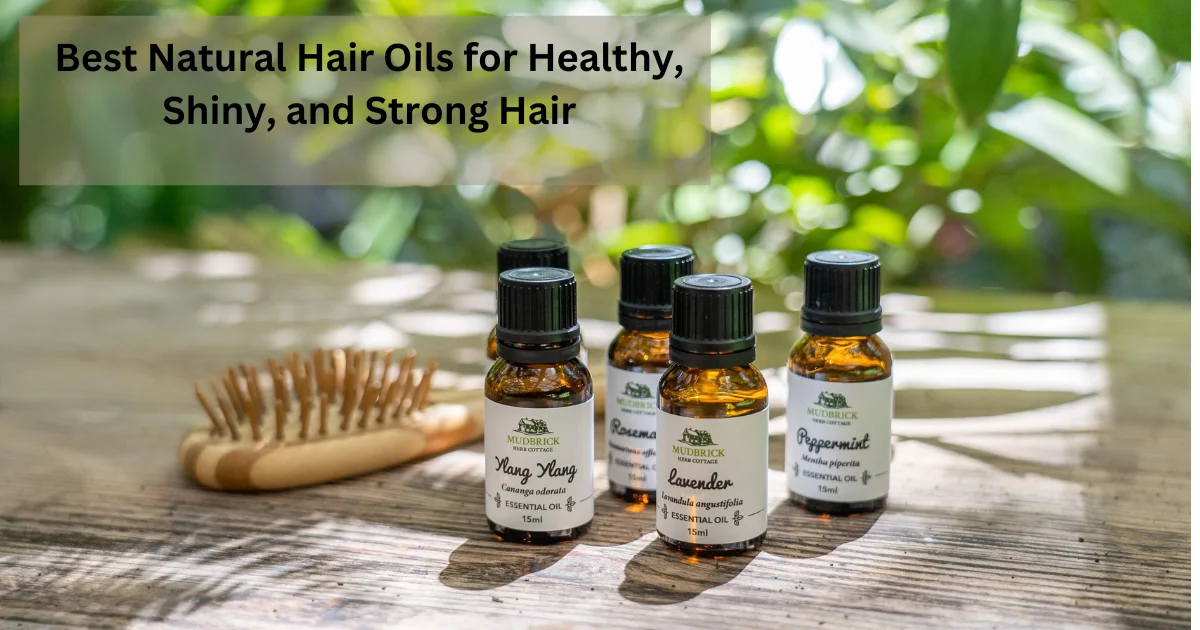
3 thoughts on “05 Best Natural Hair Oils for Healthy, Shiny, and Strong Hair”